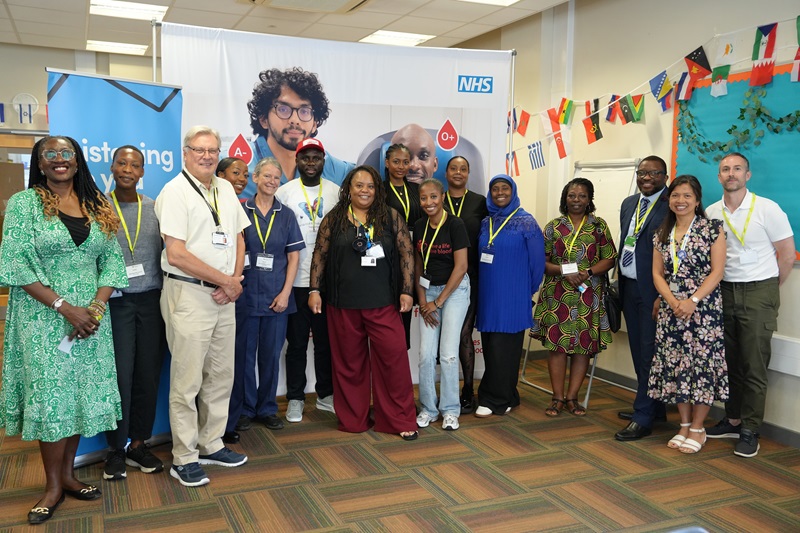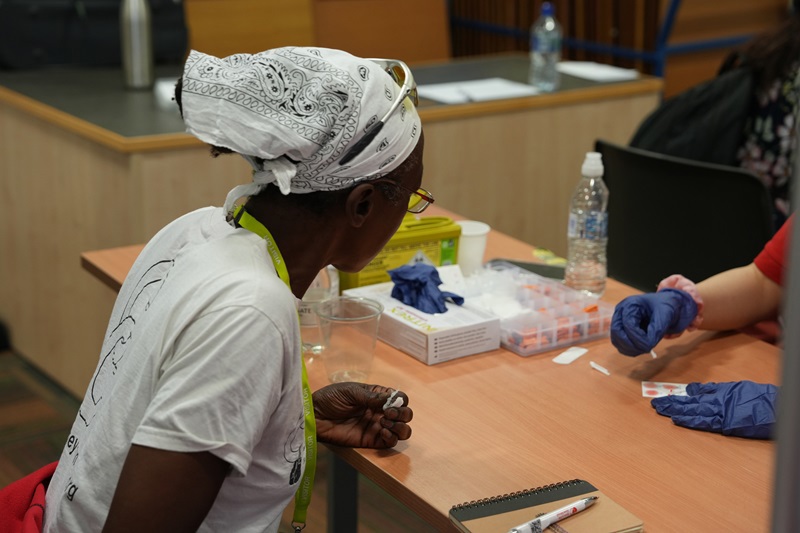Wandsworth Council marks World Sickle Cell Day with powerful awareness event
Published: Thursday, June 19, 2025
To mark World Sickle Cell Day today (June 19), in partnership with the NHS we hosted an informative Sickle Cell Awareness Panel Event for staff, shining a spotlight on one of the UK’s fastest growing genetic conditions.
Share this

The event brought together a powerful line-up of voices including Sheila Nortley, former Graveney Student and co-producer of the Netflix series Supacell where Sickle Cell is explored, alongside NHS professionals and individuals with lived experience of sickle cell disorder. Guests heard from Michaela Mayhew, Lead Nurse for Inherited Blood Disorders at St George’s, Georgia Adebowale, Patient Engagement Coordinator at West London HCC, and Patrish Zea, South West London Lead Mentor for the Sickle Cell Society.
On the panel, Aliya and Marsha, two Sickle Cell Warriors, gave guests a better insight into what it means to live with the condition every day. Their reflections on the need for greater awareness, compassion and systemic support created an open and heartfelt discussion around how communities and the council can do more to listen and support.
Guests enjoyed healthy refreshments and spoke about how they could take practical action, including the opportunity to find out their blood type on the day in a simple, pain-free way. Staff left more aware of what sickle cell is, how it affects people living with it daily and empowered to help tackle health inequalities and support those living with sickle cell.
Graeme Henderson, Cabinet Member for Health, also shared some words confirming the council’s commitment to being a listening council and to working more closely with residents, charities and the NHS to improve outcomes for those affected.
“This condition disproportionately affects Black African and Caribbean communities,” he said. "We must do more to educate ourselves, to listen to those living with it, and to ensure our borough is a place of understanding, equity and compassion.”
Why This Matters:
Sickle cell disorder is one of the UK’s most common inherited conditions, affecting an estimated 12,500 to 17,000 people across the country.
At St George’s Hospital, over 700 adults and children are currently being treated for the condition.
The disorder primarily affects people of Black African and Caribbean heritage, and many patients require regular blood transfusions to manage painful symptoms and prevent life-threatening complications.
However, blood supplies remain critically low, especially among key blood types from under-represented communities.
World Sickle Cell Day is an important opportunity to raise awareness and encourage people to donate blood, potentially saving lives.
For more information on sickle cell disorder and how to become a blood donor, visit www.blood.co.uk
